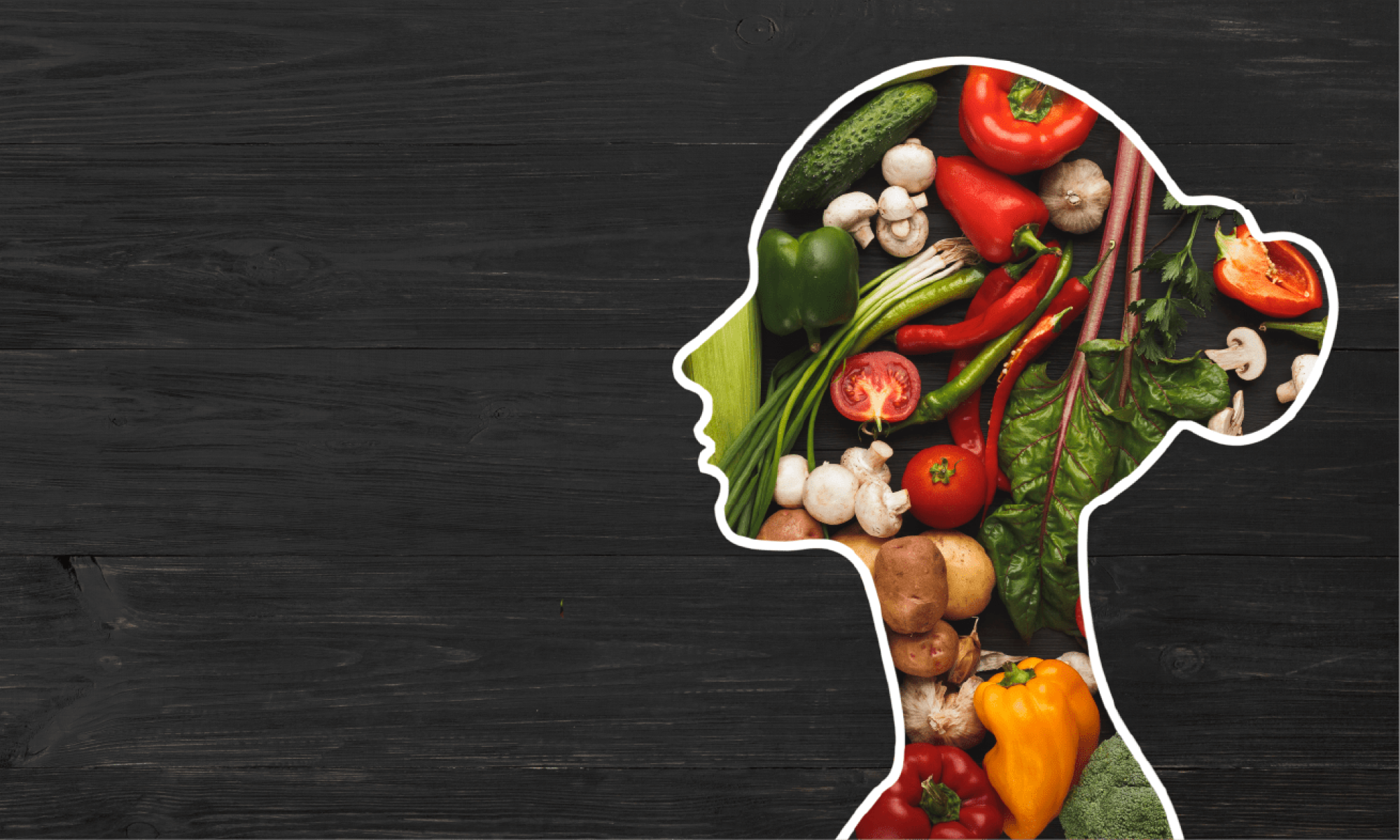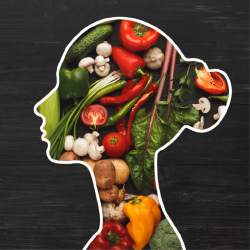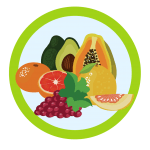
Manganese The Tiny Mineral that Powers Your Body
Manganese is a trace mineral that our bodies require in minute quantities for the proper functioning of various bodily systems. From protein and fat metabolism to healthy nerves, a strong immune system and blood sugar regulation, this mineral fulfills several important functions. Manganese is also required for normal bone growth and reproduction, aiding in the synthesis of bone and cartilage. It is also utilised in the formation of lubricating fluid in the joints, offering support for individuals with joint-related issues. This mineral is vital for individuals with iron-deficiency anaemia, as it aids in the synthesis of haemoglobin. Furthermore, it facilitates the utilisation of vitamins B1 and E and works in conjunction with the B-complex vitamins to help people feel a sense of well-being. It is found in plenty of foods like grains, nuts, and leafy greens, so it’s crucial to make sure you are getting the right daily intake.
For adults, the estimated safe and adequate daily dietary intake ranges from 1.8 to 2.3 milligrams per day. Pregnant and lactating women may require slightly more.
Meat & Protein
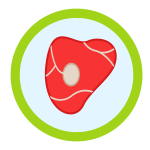
Grass Fed Red Meat
Bison provides 54% of the daily value per 3.5oz.
Beef liver 32% of the daily value per 3.5oz.
Beef Chuck Roast provides 26% of the daily value per 3.5oz.
Beef Short Ribs provides 19% of the daily value per 3.5oz.
Beef Sirloin Steak provides 15% of the daily value per 3.5oz.
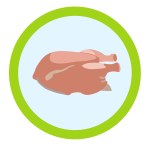
Organic White Meat
Chicken breast (boneless, skinless): 21% DV of manganese per 3-ounce serving
Turkey breast (boneless, skinless): 22% DV of manganese per 3-ounce serving
Duck breast (skinless): 13% DV of manganese per 3-ounce serving
Cornish hen (boneless, skinless): 16% DV of manganese per 3-ounce serving
Quail (skinless): 6% DV of manganese per 3-ounce serving
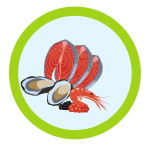
Fish & Seafood
Mussels are an excellent source of manganese, with a daily value of over 100% in just 3 ounces of cooked mussels.
Clams also provide a high amount of manganese, with a daily value of over 100% in just 3 ounces of cooked clams.
Squid has a daily value of over 25% in just 3 ounces of cooked squid.
Salmon is a great source with a daily value of over 20% in just 3 ounces of cooked salmon.
Tuna provides a moderate amount of manganese, with a daily value of over 10% in just 3 ounces of cooked tuna.
Shrimp has a daily value of over 10% in just 3 ounces of cooked shrimp.
Scallops provide a moderate amount of manganese, with a daily value of over 10% in just 3 ounces of cooked scallops.
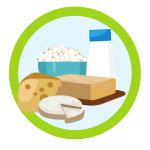
Grass Dairy
A 6-ounce serving of grass-fed Greek yogurt contains 34% of the daily recommended value.
A tablespoon of grass-fed butter contains 10% of the daily value of manganese.
Cheese made from the milk of grass-fed cows provides about 9-10% of the daily value of manganese.
Milk from grass-fed cows contains manganese. One cup of grass-fed milk provides about 6-7% of the daily value.
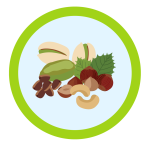
Nuts & Seeds
3.5oz of pumpkin seeds contain 139% of your daily value of manganese.
Pine nuts – 3.5oz of pine nuts contain 292% of your daily value
Just 3.5oz of almonds contain 67% of your daily value of manganese.
One 3.5 oz serving of sesame seeds contain 97% of your daily value.
Cashews -3.5oz of cashews contain 82% of your daily value of manganese.
3.5oz of sunflower seeds contain 80% of your daily value.
Only 3.5oz of hazelnuts contain 75% of your daily value of manganese.
Brazil nuts contain 58% of your daily value of manganese in 3.5oz.
3.5oz of macadamia nuts contain 40% of your daily value.
Only 3.5oz walnuts contain 45% of your daily value of manganese.

Beans & Legumes
1-cup serving containing approximately 26% of the recommended daily value of manganese.
A half a cup of lima beans contains about 20% of the daily value.
Generally, one cup of cooked adzuki beans contains approximately 60% of the recommended daily value (DV) for adults.
One cup of cooked garbanzo beans, there is about 85% of the DV.
The daily value of manganese in black beans is approximately 20% per one cup serving.
One serving size of cooked pinto beans contains approximately 22% of the daily value recommended for adults.
A half cup of cooked navy beans provides approximately 23% of the Daily Value (DV) for manganese.
One cup of cooked kidney beans contains approximate 40% of manganese.
One cup of cooked lentils contains approximately 28% of manganese.
The daily value (DV) of manganese in split peas is 14% per one cooked cup.
Fruits, Cruciferous & Leafy Greens
Organic Fruit
A single cup of pineapple chunks provides 76% of the recommended daily value.
Eating a medium-sized apple can provide about 3% of the daily value of manganese for an adult
A medium-sized banana typically provides approximately 15% of the daily value.
One cup of sliced avocado contains approximately 15% of the daily value (DV) for this mineral.
A standard serving size of fresh melon typically provides around 6% of the daily value (DV) of manganese for an average adult.
One cup of blueberries provides around 22% of the daily value.
A single cup of raspberries contains 24% of the DV of manganese.
1 cup of strawberries contains 9% of the DV of manganese.
Cruciferous
A single cup of cooked kale provides a whopping which is 27% of the daily value.
One cup of cooked Brussels sprouts provides 23% of the daily value.
One cup of cooked broccoli provides is 11% of the daily value.
A cup of cooked cauliflower provides 9% of the daily value.
Just one cup of chopped bok choy provides 8% of the daily value of manganese.
Leafy Greens
84% of daily value per cup
Swiss chard contains 38% of daily value of manganese per cup
4. Collard greens – 14% of daily value per cup
5. Beet greens – 12% of daily value per cup
6. Romaine lettuce – 7% of daily value per cup
Collard greens provides 14% of daily value per cup
Beet greens contain 12% of daily value of manganese per cup.
Romaine lettuce provides 7% of daily value per cup
Squash, Roots & Whole Grains
Organic Squash
One serving of Hubbard Squash provides about 19% of the daily value for manganese.
A one-cup serving of cooked butternut squash contains approximately 15% of the daily value.
One 3.5oz serving of spaghetti squash provides approximately 7% of the Daily Value of manganese.
A one-cup serving of cooked acorn squash contains approximately 21% of the daily value for manganese.
½ cup of delicata squash provides approximately 9% of the DV for manganese.
One serving of Kabocha squash provides about 26% of the daily recommended intake of manganese for adults.
1 cup, diced of calabaza squash contains approximately 10% of the daily value.
Roots
One serving of beetroots provides roughly 15% of the (DV) of manganese.
Approximately one cup, mashed provides approximately 15% of the daily value of manganese.
1 cup of chopped carrots provides about 7% of the daily value.
A 1 tablespoon serving of fresh ginger contains approximately 5% of the daily value for adults and children over the age of four.
Whole Grains
One serving of teff contains about 13% of the Daily Value for manganese.
One serving of quinoa, which is about 1/2 cup cooked, contains approximately 15-20% of the daily value of manganese.
One serving, or one cup, of cooked brown rice contains approximately 50% of the Daily Value.
Just 1/4 cup dry, provides 24% of the daily value for manganese.
1/2 cup of oats provides about 30% of the daily value for adult.
Fungi

Fungi
Oyster mushroom: contains around 107% of the daily value of manganese in a single serving.
Maitake mushroom contains around 45% of the daily value.
Shiitake mushrooms contain around 40% of the daily value.
Enoki mushroom contain around 34% of the daily value in a single serving.
Portobello mushroom contains around 30% of the daily value of manganese in a single serving.
Did you know?
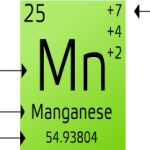
-Manganese is a chemical element with the symbol Mn and atomic number 25
It is a hard, gray-white metal that is very brittle and easily oxidized
Present in many minerals and rocks, including pyrolusite, braunite, psilomelane, and rhodochrosite

The element was discovered in 1774 by the Swedish chemist Johan Gottlieb Gahn, who isolated it by reducing pyrolusite with carbon

Manganese is the fifth most abundant metal in the Earth’s crust, but rarely occurs as a free element in nature, instead occurring in combination with other elements or as a mineral.
